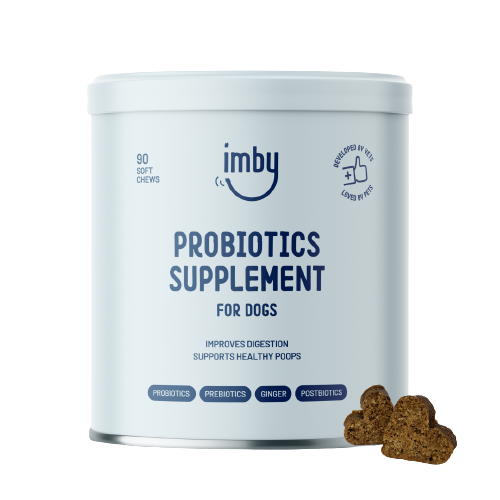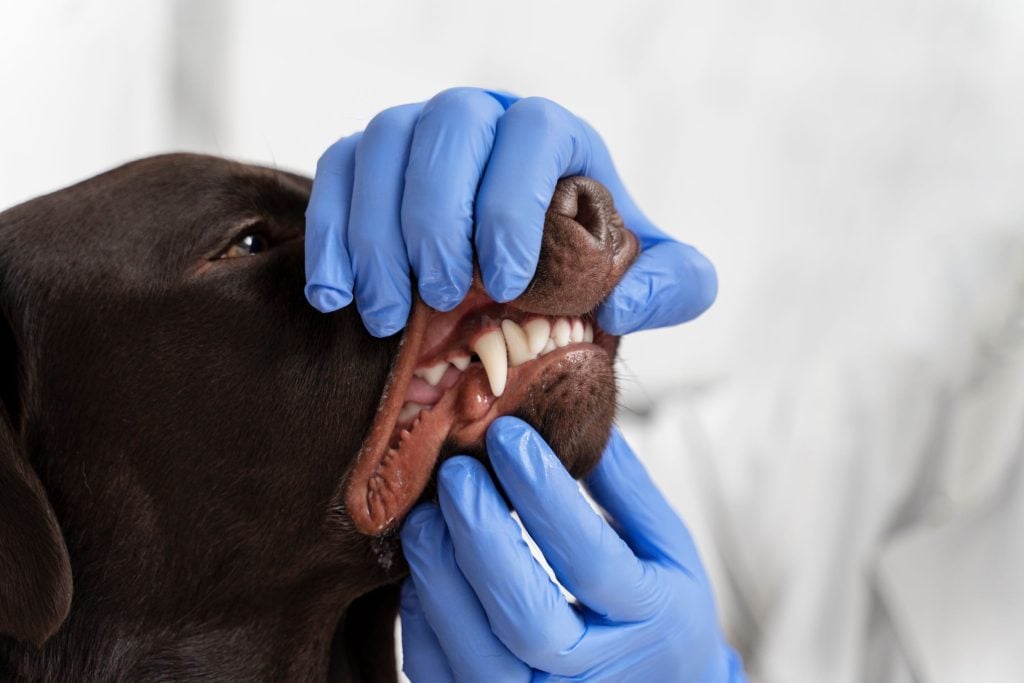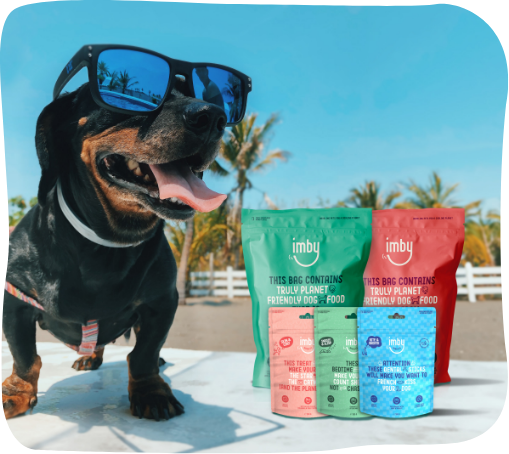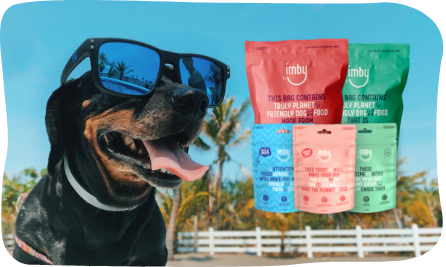Use code CHANGE20 for 20% off your first dog food order!
Use code CHANGE20 for 20% off your first dog food order!



Itching in dogs can be a frustrating problem for both pets and their owners. From constant scratching to irritated skin, finding relief can sometimes feel like an endless search. Fortunately, probiotics offer a natural and promising solution to ease this discomfort. In this article, we explore the benefits of probiotics for dogs with itching and how these friendly bacteria not only support gut health but also help relieve irritation and restore overall well-being. Discover answers to common questions and find the best solution for your four-legged friend.
Itching in dogs can stem from various causes, making it essential to identify the underlying issue for effective treatment. One of the most common culprits is allergies, which can be triggered by environmental factors such as pollen, dust mites, or certain foods. Dogs with allergies may experience persistent itching, often accompanied by redness or skin irritation.
Fleas and ticks are another major cause of discomfort. Even a single flea bite can trigger severe itching, especially in dogs with flea allergy dermatitis. Regular flea prevention is key to avoiding this issue. Skin conditions such as atopic dermatitis, bacterial infections, or fungal infections can also lead to excessive scratching. These conditions often require veterinary treatment to restore skin health.
Food allergies and intolerances can manifest as itchy skin, ear infections, or digestive issues. Some dogs react negatively to common ingredients like beef, chicken, dairy, or grains. Switching to a hypoallergenic diet under a vet’s supervision can help pinpoint the problem. Environmental factors such as dry weather, excessive sun exposure, or harsh grooming products can also contribute to dry, itchy skin. Keeping your dog’s skin moisturised and using gentle grooming products can help prevent irritation.
Lastly, stress and anxiety can lead to excessive licking, biting, or scratching. Just like humans, dogs may develop nervous habits when they feel anxious. Addressing stress through mental stimulation, exercise, and a comfortable environment can help reduce these behaviours. Since itching can result from multiple factors, consulting a vet is the best way to determine the cause and find an effective solution.
reatment depends on the cause, but common solutions include:
A vet’s guidance is crucial to ensure the correct diagnosis and treatment plan.
Yes! Probiotics can play a role in managing itchiness by:
Including probiotics in your dog’s diet may help alleviate itching while promoting overall health. Always consult your vet before making dietary changes.
Probiotics work in several beneficial ways to help alleviate itching in dogs. They promote a balanced gut, which improves digestion and reduces digestive-related itchiness. A healthy gut also strengthens the immune system, helping to regulate immune responses and minimise excessive reactions that can trigger itching. By reducing inflammation, probiotics can help alleviate allergic reactions, another common cause of itching. Additionally, they support skin health indirectly by improving digestion and reducing inflammation. Finally, a well-balanced gut microbiome plays a role in regulating neurotransmitters, which helps to lower stress levels and reduce stress-related scratching in dogs.
The amount of probiotics a dog should take to relieve itching can vary based on several factors, including the severity of the itch, the dog’s weight and size, and the specific probiotic supplements being used. It’s always best to consult with a veterinarian, who can provide tailored advice based on your dog’s individual needs.
Probiotics for dogs are commonly available as supplements, powders, or dietary additives that can be mixed with the dog’s food. The recommended dosage typically varies, but general guidelines can usually be found on the product packaging or obtained through your vet’s advice.
It’s crucial to follow the manufacturer’s instructions and avoid exceeding the recommended dosage, as overuse can have negative effects. A vet can also offer guidance on how long to use probiotics and whether additional treatments should be combined with them to effectively relieve your dog’s itching.
Anti-itch probiotics for dogs are available in various forms to cater to different needs. They can be found as supplements, typically in the form of powders, capsules, or tablets, which can be easily mixed into your dog’s food.
Probiotic-rich foods, such as certain types of yoghurt or kefir, are also natural sources of probiotics. However, it’s important to ensure these foods are suitable and safe for dogs before offering them.
For dogs with skin conditions causing itching, probiotic ointments or creams can provide targeted relief. These are applied directly to the affected areas and help restore the balance of microbes on the skin.
The best form of probiotics for your dog depends on their individual needs, and it’s advisable to consult with a vet to determine the most appropriate option.
Soft chew supplements with anti-itch probiotics are a fantastic option for dogs, offering a lot of benefits over traditional powders or pills. For starters, they’re much easier to give to your dog thanks to their tasty flavour and soft texture. This makes them perfect for picky eaters or dogs that struggle with swallowing pills. Plus, soft chews come in pre-measured doses, so there’s no need to fuss with measuring or weighing, like with powders.
Another great thing is that soft chews are absorbed quickly into your dog’s system, meaning they work more efficiently than pills or powders, which need to be broken down first. And because they’re soft and chewy, there’s less chance of spillage or waste, so you won’t have to worry about losing any of the product.
Soft chews also come in convenient, portable containers, making them ideal for travelling with your dog. Whether you’re at home or on the go, it’s easy to give your dog the consistent relief they need.
In short, soft chew supplements with anti-itch probiotics are a super convenient, effective, and tasty way to help your dog with itching, all while making life easier for both you and your furry friend.
Yes, probiotics can be a valuable tool in managing itchy skin, especially when combined with other treatments. They promote gut health, strengthen the immune system, and improve skin condition. Soft chew probiotic supplements offer an easy, effective way to support your dog’s health while providing relief from itching.
Yes, but always consult your vet first to ensure they are suitable for your dog’s condition.
Yes, they help rebalance gut bacteria, which can improve digestion and overall health.
Follow the dosage instructions on the product or consult your vet for specific recommendations.
Yes, excessive probiotics can cause digestive issues. Stick to recommended amounts.
Sometimes, especially if introduced too quickly. Start with small doses and monitor your dog’s response.
Yes! Imby’s Skin Health Supplements provide additional support for healthy skin.





It's all to make your browsing and shopping experience at Imby, a real treat! Read more about it in our Privacy Policy.
4.8 out of 5 stars
based on 1171 reviews



"*" indicates required fields